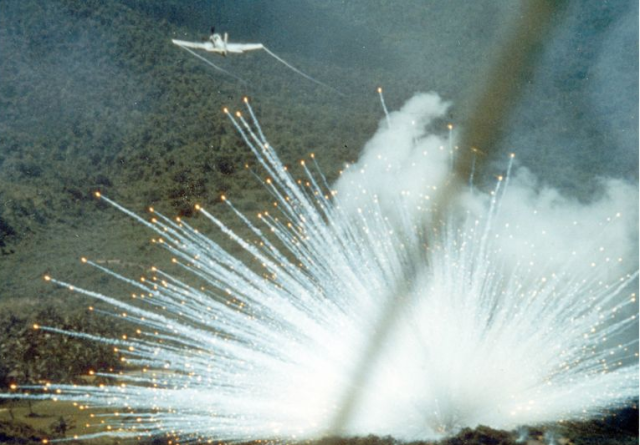The Republican Party isn’t extreme enough. So say the Koch brothers, who are threatening to withhold the $400 million they have promised to inject into the 2018 electoral cycle.
Members of the U.S. Congress have received their marching orders: Repeal the Affordable Care Act (in other words, replace “Obamacare” with “Trumpcare”) and lavish billionaires with massive tax cuts. A June “donor retreat” at a Koch brothers’ compound in Colorado was attended by 400 people, and the “price for admission for most was a pledge to give at least $100,000 this year to the Kochs’ broad policy and political network,” The Guardian reported.
The Koch brothers are on record as committing up to $400 million on the next midterm elections, but such largesse is not without strings. The Guardian quoted the head of the Koch brothers’ political arm, Americans for Prosperity, Tim Phillips, as frustrated at the delays in extremist legislation getting through Congress. “There is urgency,” Phillips said. “We believe we have a window of about 12 months to get as much of it accomplished as possible before the 2018 elections grind policy to a halt.”

A Louisiana bayou devastated by a nearby natural gas operation (photo by John Messina for the U.S. Environmental Protection Agency)
As an example of what is expected to be done, one wealthy donor told the gathering that his “Dallas piggy bank” is closed for now. “Get Obamacare repealed and replaced, get tax reform passed. Get it done and we’ll open it back up,” he told The Guardian, adding that he has encouraged other wealthy donors to similarly withhold money until they get what they expect.
There really isn’t anything new here, other than it is unusual for any window to be opened into the secretive workings of Charles and David Koch’s networks. Their massive spending to buy Congress and state legislatures (they budgeted $900 million for the 2016 elections), their widespread funding of global-warming denialism, their willingness to destroy the environment in pursuit of endless profits, and their relentless focus on privatizing public assets are well known. Their Americans for Prosperity outfit was also a crucial funder for the corporate-sponsored Tea Party movement. Perhaps less known is that they are bankrolling an attempt to re-write the U.S. Constitution.
Amending the Constitution to suit themselves
There are two separate pushes for a constitutional convention. In a Truthout report, Alex Kotch writes:
“One would attempt to engineer a convention for a balanced budget amendment only, and the other tries to secure an open convention for the purpose of limiting the power and jurisdiction of the federal government. But once a convention is underway, all bets are off. The convention can write its own rules, resulting in a wide-open or ‘runaway’ convention that can make major changes to the constitution and, some argue, even change the number of states required to ratify those changes.”
Under U.S. law, if the legislatures of 34 states (two-thirds of the states) call for a constitutional convention, Congress is required to convene one. The balanced-budget resolution has been passed by 29 states, Truthout reports. Once a convention is convened, it can write its own proposals, including changing the number of states required to pass a constitutional amendment to make it easier for extreme corporate wish lists to be converted into permanent law. But even if only a balanced-budget amendment were to become part of the U.S. Constitution, such an amendment would enshrine harsher austerity with little or no recourse.
The Center on Budget and Policy Priorities puts this plain:
“By requiring a balanced budget every year, no matter the state of the economy, such an amendment would raise serious risks of tipping weak economies into recession and making recessions longer and deeper, causing very large job losses. That’s because the amendment would force policymakers to cut spending, raise taxes, or both just when the economy is weak or already in recession. … [T]he amendment would force policymakers to cut spending, raise taxes, or both. That would launch a vicious spiral of bad economic and fiscal policy: a weaker economy would lead to higher deficits, which would force policymakers to cut spending or raise taxes more, which would weaken the economy further.”
A detailed analysis by Macroeconomic Advisers estimates that, had a balanced-budget amendment been in place at the time of the 2008 economic crash, there would have been an additional 11 million people unemployed in 2012 and gross domestic product would have declined 12 percent that year. Because of the decline in tax revenue this would cause, an additional $500 billion would have been added to that year’s deficit, and coupled with the cuts in spending that would have mandated by such an amendment, U.S. government discretionary spending would have been reduced to zero. As in literally nothing.
The Koch brothers and their billionaire confederates would be doing just fine, however, and that’s all that matters. A web of Koch-funded organizations are funding and promoting these pushes for a constitutional convention.
Clean air and water? Who needs them?
Koch Industries is one of the country’s worst polluters of the air and water as well as a major source of greenhouse gases. Thus it comes as no surprise that Charles and David Koch, who operate the company, are also active funders of global-warming denialism, and the two stand to profit enormously from the Alberta tar sands. They own close to two million acres that, should that land be fully exploited, would throw another 19 billion metric tons of carbon emissions into the atmosphere. The International Forum on Globalization estimates that the Koch brothers stand to make more than one million times more than the average Keystone XL pipeline worker over the life of the pipeline, based on potential profits of $100 billion.
The Koch brothers are major funders of the extremist American Legislative Exchange Council (ALEC) that writes legislation to benefit its corporate membership that is frequently passed by state legislators verbatim; and even attempted to take control of the Cato Institute, the far-right libertarian “think tank” that, despite agitating for the end of Social Security, was apparently not extreme enough for them.
Not content with control of Congress and state legislatures, David Koch donated $300,000 to U.S. Vice President Mike Pence’s gubernatorial bids, and Pence has dutifully denied global warming. A 2014 Politico article reported:
“A number of Pence’s former staffers from his days in Congress have assumed major roles in the brothers’ corporate and political spheres. And Americans for Prosperity, the Kochs’ top political group, has been holding up Pence’s work in Indiana as emblematic of a conservative reform agenda they’re trying to take nationwide. … Pence has worked to spotlight the fiscal issues that animate the Kochs’ political giving. People close to the brothers say he first earned their network’s admiration during the George W. Bush years, when he opposed what he deemed Big Government policies backed by his own party, including No Child Left Behind and a Medicare expansion, and repeatedly warned that the GOP was veering off course.”
As I have noted before, this is a lament that the Bush II/Cheney administration was too liberal!
National parks in the cross hairs
The Koch brothers’ extreme hostility to anything public — that is, anything that is not being exploited for corporate plunder — has gone so far as to oppose national parks. Unfortunately, this is not a joke. A Koch brothers-backed outfit calling itself the Property and Environment Research Center is advocating selling them. Reed Watson, the center’s executive director, argues that “land management agencies [should] turn a profit” by removing restrictions on timber and energy development.
To soft-peddle this extremism, the center calls for selling off other federal lands rather then openly advocating selling national parks — an immensely unpopular idea across the political spectrum — but that is where the logic of its extremism points. In a paper the center produced, “How and Why to Privatize Public Lands,” the group makes it intentions clear:
“Four criteria should guide reform efforts: land should be allocated to the highest-valued use; transaction costs should be kept to a minimum; there must be broad participation in the divestiture process; and ‘squatters’ rights’ should be protected. Unfortunately, the land reform proposals on the table today fail to meet some or all of those criteria. Accordingly, we offer a blueprint for auctioning off all public lands over 20 to 40 years.”
Note that it says “all” without qualification. Oil rigs and fracking operations instead of natural scenery for all to enjoy because it would be more profitable in the short term. This mindset has reached the highest level of government as exemplified by the Trump administration’s intentions to open federal lands to mining and oil extraction at fire-sale prices without oversight, or to sell them.
It’s not as if the Koch brothers don’t know where their next billion is coming from. Combined, the two are worth about $97 billion. Each is one of the nine richest people on Earth, and together the two possess more wealth than the world’s richest person, Bill Gates. They were worth $32 billion in 2009 — nearly tripling their fortune since the first year of the Obama administration.
This is all the product of libertarianism, a a philosophy of might makes right. A belief in complete freedom of commerce, of minimal government involvement in the economy or social affairs, is nothing less than allowing the “market” to determine economic and social outcomes. The logical outcome of this is no more minimum wage, no more Social Security, no more laws against discrimination in the workplace, no more safety rules, no more consumer-protection laws, no more environmental protection. This indeed is what libertarians preach, including the Koch brothers and Ron Paul.
Who is this individualistic “freedom” for? It is “freedom” for industrialists and financiers to rule over, control and exploit others. “Justice” becomes the unfettered ability to enjoy this freedom, a justice reflected in legal structures. Working people are “free” to compete in a race to the bottom set up by capitalists.
On an even playing field, the brutality of the programs put forth by the Koch brothers and their fellow libertarian billionaires wouldn’t pass the laugh test. But when you have hundreds of millions of dollars to throw around every two years, and an interlocking maze of organizations and “think tanks” to promote your self-serving agenda, you have the ability to make the most obscene ideas “mainstream.” On what basis should such one-sided power relations be considered democratic?





